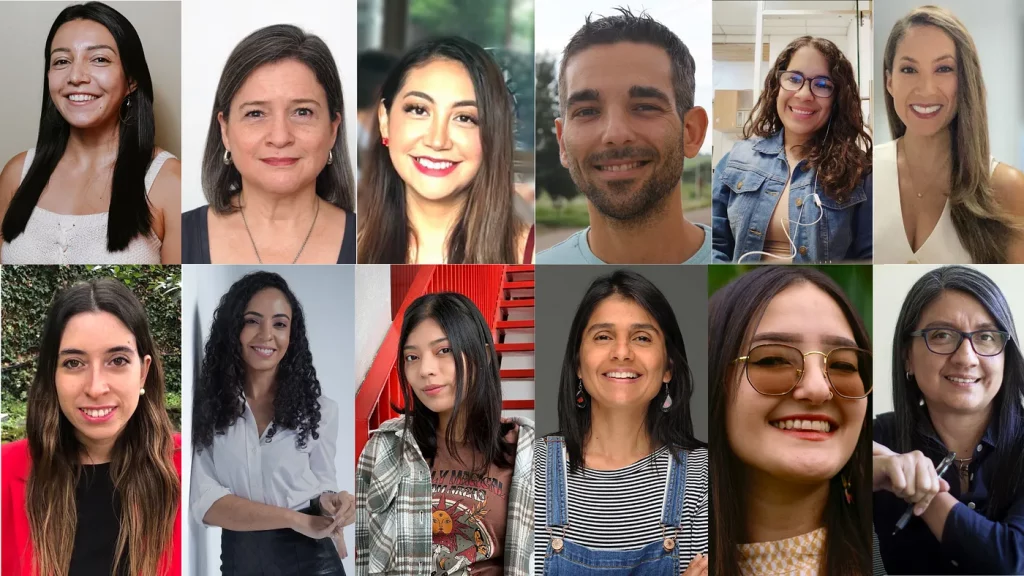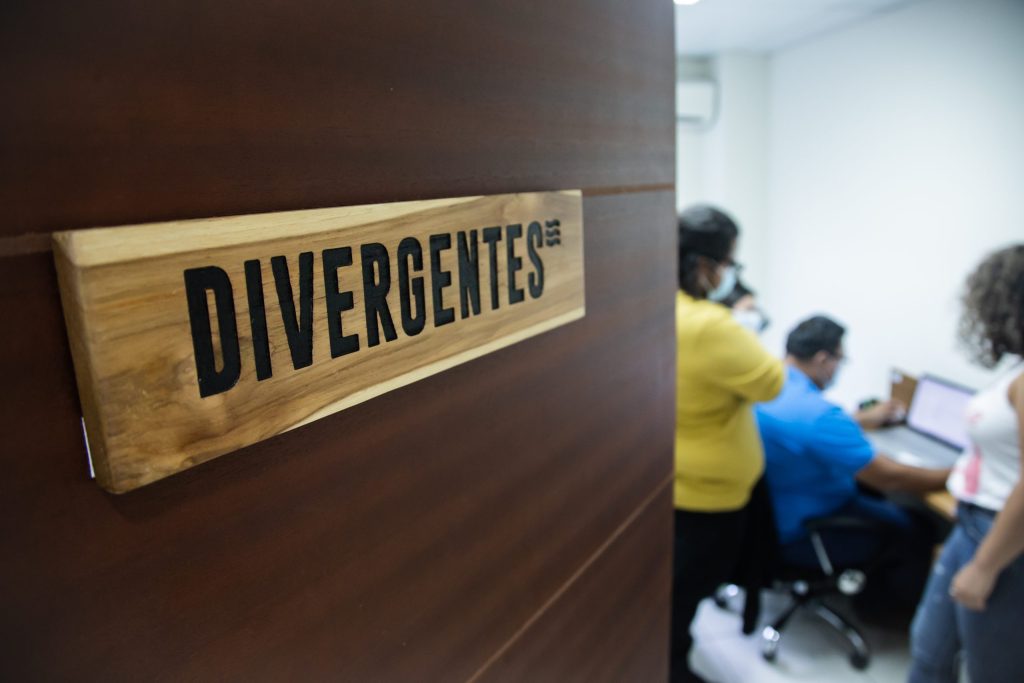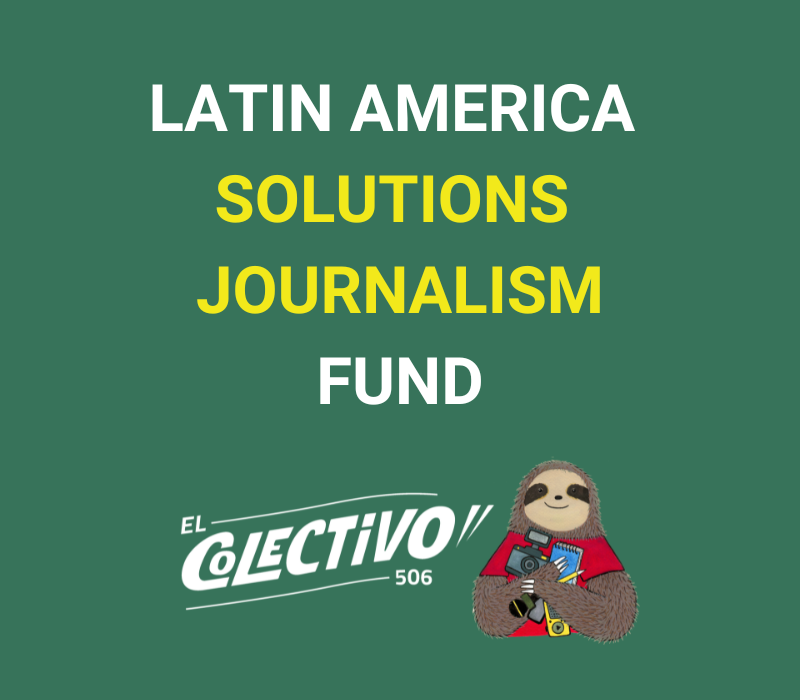What would happen if journalists in Latin America could more easily identify, report, and share stories across borders about what’s working in our countries?
What might the impact be—particularly in our region, Central America, a small area where we share many common threats to democracy and citizen wellbeing, yet find few opportunities for communication among countries?
How could increased support for independent, rigorous solutions journalism cause a ripple effect on the initiatives we document in such stories, on the people who read them, and on the mental health of the journalists who tell them?
At El Colectivo 506, Central America’s first-ever nationwide solutions journalism organization, we are determined to find out. That’s why, earlier this year—inspired by the global leadership of the U.S.-based Solutions Journalism Network (SJN) to promote this kind of rigorous, independent journalism around the world, and to build a Solutions Journalism Network for Latin America—we set up a nonprofit fund to provide microgrants for solutions training and reporting in Central America and beyond. Our region’s journalists need and deserve every ounce of support they can get, and we want to do all we can to be a part of the solution that entities like SJN represent.
Training to change the conversation in newsrooms across the region
The impact of our Latin American Solutions Journalism Fund is already spreading across the region, thanks to an initial donation of $10,000 from the U.S.-based Burgess Fund. With that support, we joined the Solutions Journalism Network to offer the first-ever solutions journalism Train the Trainers event that has not been funded directly by the SJN itself. In May, our Mónica Quesada Cordero, already an accredited SJN trainer herself, coordinated and taught the course alongside Jonathan Gutiérrez (Venezuela), the Latin America coordinator for the SJN, and Tina Rosenberg (United States), the co-founder of Solutions Journalism Network. Tina is the Pulitzer Prize and National Book Award-winning journalist who, alongside David Borstein, created the New York Times’ solutions journalism “Fixes” column and built the SJN to promote the practice of this rigorous methodology.
Thanks to this alliance, journalists and editors from eight countries in the Americas, Latin America and the Caribbean (Argentina, Brazil, Costa Rica, Ecuador, Guatemala, Puerto Rico and Venezuela) took a Train-the-Trainers course adapted to journalism in Latin America. (Read more in the SJN’s Whole Story column here.) All of these leaders now have the option to become certified trainers themselves, and the Latin American Solutions Journalism Fund is working with the Central American participants to ensure that as many journalists as possible in our region benefit from this growing wave.

The recent graduates are now planning trainings for Costa Rica, Guatemala, and El Salvador—and just this week, our co-founder Katherine Stanley Obando earned her own Train the Trainers certification by training a group of Nicaraguan journalists and journalism students through an alliance with Nicaraguan media organization Divergentes and its director Nestor Arce. The session included a rich and dynamic conversation about the very real question: what does rigorous, independent solutions journalism look like in the midst of crisis and dictatorship?
The participants, and most journalists we reach with these conversations, were brimming with ideas for stories that should be told. That’s why we’re not stopping with training. Our fund will also offer resources for reporting.

A first round of reporting grants
The Latin American Solutions Journalism Fund is days away from opening its first round of reporting grants in August-September 2024, which will fund up to eight pieces of solutions journalism created for and from Central America. Any journalist who has registered with the Fund as a participant in a relevant solutions journalism training, who is a citizen or resident of Central America, and who has a reporting idea about a response to a problem in the region, can apply. The relevant trainings include the new trainings the Fund is now offering, as described above, as well as relevant SJN trainings such as the LEDE Fellowship and Train the Trainers programs. (Journalists can register at sala506.com/fondopds).
We hope that with this support, a group of outstanding Central American journalists will produce rigorous solutions journalism that tells the story of responses to some of our region’s most significant problems—and that some of those journalists will be trying their hand at “sojo” for the very first time. The selected journalists can publish their work in the media organization of their choice, and we will republish, with credit, the stories in English and Spanish at El Colectivo 506 in a special edition of Central American solutions later this year.
Would you like to be a part of this effort? Spread the word to journalists you know in Central America and the rest of Latin America, by sharing this article. Sign up to our free weekly bulletin so that you can stay up-to-date on our Costa Rica-based, but now Central America-wide, work and outreach. And please consider becoming one of the very first individual donors to the Latin American Solutions Journalism Fund, which is hosted at Costa Rica’s SOMOS Foundation and can receive online donations (tax deductible in the United States) through the U.S. nonprofit Amigos of Costa Rica.
News organizations are closing and journalists are losing their jobs throughout our region each week. As journalists ourselves who struggle for financial sustainability, we know just how much a motivated journalist can achieve with a microgrant, and how much it can mean to us to have something to work with so we can continue in the profession that we love. A punishing profession, at times. We would love to have you aboard so that this effort can grow.






